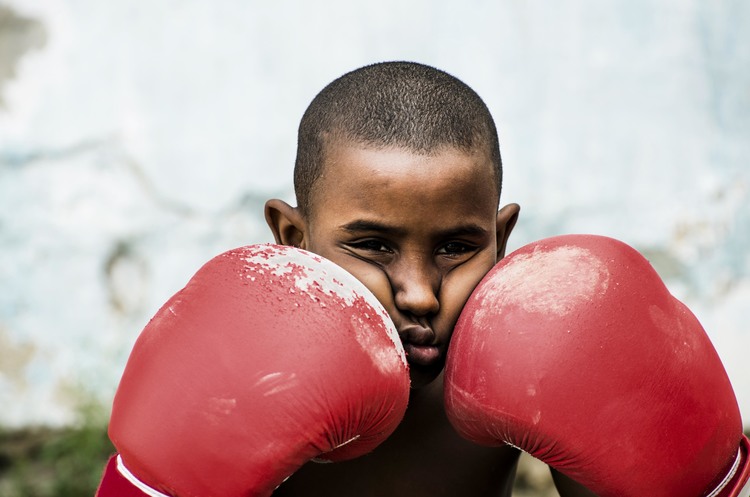Cuban fighters smell fear in their opponents. If they can intimidate you, they’ve got you. They psychologically steamroll guys.
MICHAEL BENTT, FORMER WBO HEAVYWEIGHT CHAMPION
Bam. Whack. Thud.
Lost in the black back streets of Old Havana, a smile has formed on my face as if sculpted by the onslaught of jabs, hooks and uppercuts. Glimpses into such mastery don’t get more intimate.
While I’m doing my best to avoid getting knocked out, I know the country’s most successful sport is facing an opponent of its own. Capitalism threatens to corrode the mysterious art of Cuban boxing.
It was more curiosity than quest that lured me to Havana. Four gold medals at the Sydney Olympics was the catalyst for my interest in Cuban boxing, but the country’s actual success inside the ring started long before.
Since shocking the world by winning three gold medals at the 1972 Munich Olympics, the island nation has made a habit of dominating international competition. Keeping in mind that Cuba missed two Olympic games (1984 and 1988, in support of the Soviet bloc boycott), the boxing team won a staggering 32 out of a possible 51 gold medals from 1972 to 2004. It made no sense.
Boxing is well suited to the Cuban character. We are brave, resolute and selfless. We have strong convictions and clear definitions. We are pugnacious and we like to fight.
Sagarra Caron, the Cuban national boxing coach 1960-2001
How was it that a tiny Caribbean island managed to dominate amateur boxing for the better part of four decades? How did a cash-strapped embargoed socialist nation embarrass their superpower neighbours, the United States of America, for so long? And why, after so much acclaim, is Cuban boxing suddenly against the ropes?
Cuba’s former president, Fidel Castro, outlawed professional sports shortly after the 1959 revolution. Claiming money and competition contradicted socialist ideals, the new government took control of Cuba’s athletes and began pumping funds into state-run training facilities. Boxing was the big winner.
By the time I arrived in Havana I had researched many theories about what separated Cuban boxers from the rest of the world. Their formula was far from a secret. Talented kids were placed in strict boxing programmes, given preferential treatment by the government and treated like national heroes if they won.
On paper, the map to Olympic glory was clearly outlined. Still, I remained certain that intangible factors were at play.
Cuba has about 185 boxing gyms, but the one I stumbled upon in Old Havana looked little like a place that bred future champions. About the size of a basketball court, ancient truck tyres sat like rubber islands on the dirt floor and an old, heavy bag dangled lifelessly in the far corner.
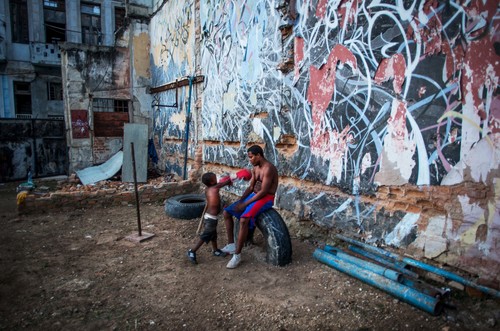
The space felt abandoned, squeezed between a dilapidated apartment block and a makeshift rubbish dump. Every now and then a warm breeze blew through the putrid smell of waste and rotting food scraps.
What made the gym exceptional was what it lacked. It had no roof, no boxing ring, no wrist straps, no mouth guards, no head gear, no groin protectors, no round timers, no speed bags, no water bottles and no weights.
All I initially found was a trainer, a dozen or so shirtless boys and half as many tattered boxing gloves. Better equipped gyms existed nearby but this was my kind of place. No tourists, no frills, no bullshit and seemingly, no rules.
Boys were sparring without supervision. Few wandered in late. Some casually stretched. Others played baseball. Then there were those who had perched on a pile of rubble and showed no interest at all.
The head trainer realised he had company. Sporting blue tracksuit pants and a matching tank top, he stared at me for a few long seconds.
I could hear the spray of punches behind him as he marched towards me and was certain I was about to be sent on my way. Instead, he opened a rusty gate and ushered me in.
“Boxer?” he enquired, sizing me up.
“Kind of,” I shrugged.
He looked at me suspiciously but shook my hand tenderly, as if protecting an old wound. He introduced himself as Raffy, but never asked my name or where I was from.
My presence instantly distracted the boys. They giggled and pulled faces at my camera lens. One skinny boy named Cesar continually pleaded with me to shoot video of him shadow boxing, more intrigued by his own form than the unfamiliar technology.
The sideshow I had created soon tested Raffy’s patience. He clapped loudly and swore, and sang out instructions in rapid fire. Suddenly I was reduced to the periphery as the gym detonated back into a soup of activity.
“Mira, Mira!” Raffy barked, demonstrating a one-two combination by grabbing a pair of tiny fists as though operating the levers of a crane. “Look, look.”
It’s often said in Cuba that today’s boxing champions are tomorrow’s trainers. Raffy had an eye in every direction (including one on me). With some boys he would patiently and delicately work with them. With others, often the most advanced kids, he would burst into an animated tirade with the slightest sign of slipping focus. On a few occasions he whacked a kid across the forearm with a stick, presumably for doing nothing more than losing concentration.
I didn’t choose boxing. They chose it for me in Cuba. I wanted to become a baseball player. That was always my dream. But, you know, in Cuba your are not allowed to make your own decisions.
Juan Carlos Gomez, Cuban boxer and defector
But the boys soldiered on, even with tears blobbing their vision. I felt queasy witnessing such blatant aggression. I sensed Raffy knew I didn’t condone his methods, but he wasn’t about to change his approach. Not for me, not for anyone.
Good old-fashioned Cuban toughness had helped mould some of the greatest fighters the world has ever seen. Besides, Raffy was doing something right. Many of the boys demonstrated near flawless skill. They floated over the dirt with the ease of a vacuum. Little hands remained high. Elbows were glued to ribs and spines were tall. Shoulders relaxed.
Eyes were alert and accepting of the hard work. Chins were tucked in as though the boys were playing imaginary violins. When everyone was switched on and sweating and sharp, it was hard to imagine any kids their age, in any gym, anywhere, demonstrating equal talent.
For a while, I was being treated to a choreographed ritual, as if they were waiting for me, or rather someone, anyone, to witness them perform upon that dirt floor stage.
It was dark by the time they called it quits. The training session seemed to fizzle out, rather than officially end. The gloves were tossed into a dirt-filled plastic bag and everyone scattered back to their homes eager to shower, eat, sleep, wake up and presumably repeat the whole process again.
Raffy took his time exiting. He wanted to make sure Cesar got home safely and began chaperoning us down the nearly pitch-black backstreets. The buildings we passed were cracked and botched with age.
The tepid night was sweet with the aroma of home cooking, mushy black beans, crispy rice and maybe some fresh fish if they were lucky. Plates would likely be mopped up with stale bread.
Families could be seen chatting in humble living rooms. The bluish hue of old television sets lit their faces. Trapped in another time, without a window to the wants of the Western world, they appeared content in the solitude of a tangible community, free from the compulsive feeling of First World inadequacy.
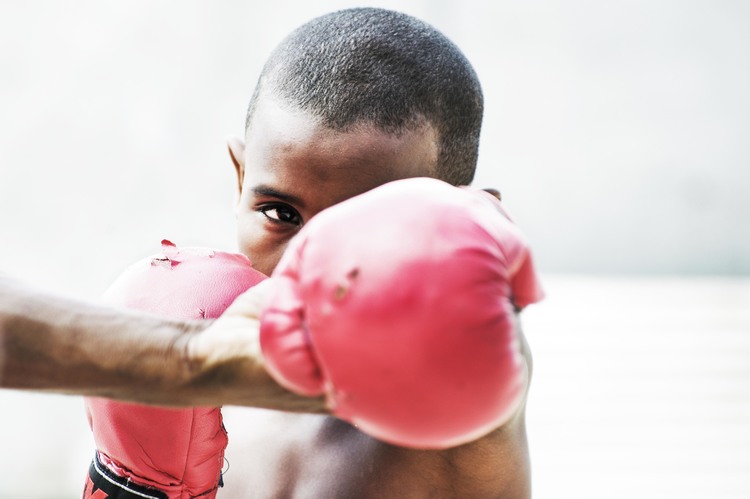
Before we said our goodbyes, the man who had seemed so intimidating inside the gym caressed Cesar’s shaved head, as if protecting his own son.
“I train many, many, many, champions,” Raffy said, his broken English reduced to a whisper. “One day Cesar will be champion.” There was something about Cesar that stood out from the other kids. It wasn’t just his skill, but rather the sense of showmanship he possessed that reminded me of numerous great fighters. It wasn’t his potential I questioned, but rather how the changing landscape in Cuba – in sport and beyond – might further mould and motivate him.
Floyd “Money” Mayweather Jr, the undefeated American boxer, would never obtain his effusive nickname in Cuba.
With an estimated income of US$90 million in 2013 alone, Mayweather is the world’s highest paid athlete. His moniker fits in a place addicted to being bigger and better, but doesn’t wear so well in a country clinging to egalitarian and classless principles.
Just 145 kilometres from the shores of the United States, world-class Cuban boxers slug it out for a mere 20 bucks a month. When it comes to making money, it hasn’t mattered if a Cuban boxer is undefeated, an Olympic medallist or a national hero, because its taxi drivers, teachers, doctors and the world’s best boxers all officially bank the same paycheck. Until now.
For the first time in five decades, Cuban boxers will be able to compete in semi-professional tournaments. Fighters will only be able to collect up to $3000 per month and retain eligibility to compete in the Olympic Games. “Money” Mayweather may scoff at such a pay day, but it represents a major shift in Cuba’s sporting scene and hints at much bigger changes to come.
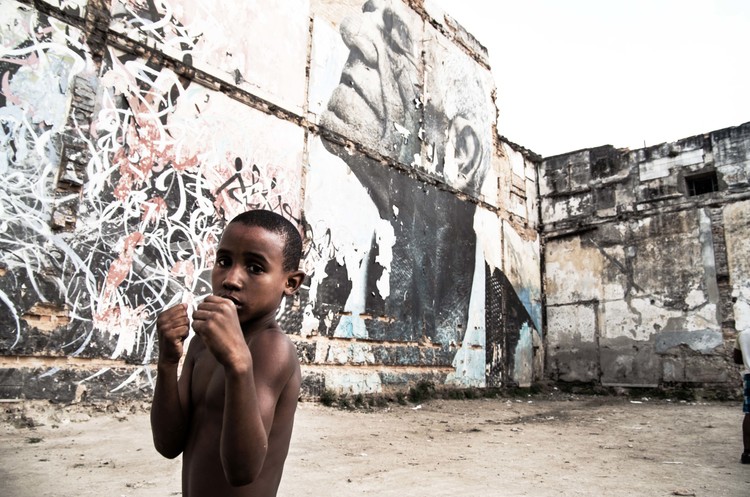
Communism in Cuba has been running out of steam for years now. While remaining a world away from Wall Street, sanctions on travel restrictions are being eased, smartphones and internet access are increasingly available, and entrepreneurs sprout from the more relaxed terrain. Capitalism is circling and jabbing at Castro’s waning socialist ideals.
In recent years, an emerging decline in Cuban boxing has arisen, arguably due to the pitiful wages, lack of facilities, and infrequent opportunities for athletes to compete on the world stage.
When three of their boxing stars defected in 2006, the Cuban boxing delegation was hit where it hurt most, the medal count. For the first time in 36 years, Cuba failed to win a single gold medal at the Beijing Olympics.
Those in favour of allowing boxers to compete in these semi-professional tournaments believe the move will allow Cuban fighters to face stiffer competition and stay sharp. More likely is the reality that Cuban boxers are no different from the likes of Mayweather. Money talks.
“It motivates me. It’s something new. It’s a challenge,” world featherweight champion Lazaro Alvarez told Associated Press after the semi-pro tournament was announced. “I would really love to take part to be able to show the world what I am, what Cuban boxing is really all about.”
There is little doubt Cuban boxers have been the best in the business. The irony is that in Cuba, boxing hasn’t been a business at all.
Now change is looming and paydays are coming, the question remains whether the tiny country can continue to fight above its weight class. It’s not a matter of if, but when, the proverbial iron fist officially hangs up its glove.
What’s a million dollars, compared to five million Cubans who love me?
Teófilo Stevenson, after turning down a proposed lucrative bout with Muhammad Ali
It was Groundhog Day in Havana. The training sessions, like each day in Old Havana, felt identical. As the boys began warming up, salsa music wove and spun from nearby living rooms, and cars built in the 1950s rattled across potholes.
Kids played baseball in the streets using bottle caps as the ball and broken broomstick’s for bats. Men laughed and puffed on cigars over rum-fuelled domino games.
Then the outside neighbourhood dissolved as the gym erupted into an orchestra of punches thudding, banging and drumming in rhythm. The rusty chain of the heavy bag clanked. Raffy barked. The boys fought back tears. My conscience churned. I was a familiar face for the three weeks I was there, but I remained an outsider.
Similarly, Cuba knew what it was like to be secluded. The country had been embargoed, forgotten, left alone to its own devices. Yet I suspected the distinct isolation had aided its boxing prowess.
Without instant access to my internet world, I went on a complete digital detox. Time slowed. Days dragged on.
By the end of my trip I was eager for each day to cool so the gym sessions could begin. Like an animal waiting to be fed in captivity, I had never experienced the desperation of such monotony. Only now did I clearly comprehend how repetition could be a pivotal facet for an elite athlete.
It’s not that Cesar, the tiny boxer, was bored. In fact he was engaged, determined and accepting of the way time effortlessly passed in the slow perish of this city. Even though the oversized gloves looked comical on his spaghetti arms, I became convinced that the boy, sphinx-like, held secrets to why Cuban boxing had previously reached such vast pinnacles.
Men’s sacred values are beyond gold and money. It’s impossible to understand this when you live in a world where everything is bought and sold and gotten through gold.
FIDEL CASTRO, 1971
There was something distinctive about the way he practised. When he was switched on, he focused as intensely as anyone I had ever seen in any sport or profession. Time after time, Raffy would correct his form.
Often he used his dreaded stick to literally draw a line in the dirt to draw the proper foot placement for his stance. For long periods of time, Cesar was treated like a lump of brown clay as Raffy, looking like a conductor with his stick, prodded his torso, pulled his limbs and sculpted his protégé, one vicious whack after the next.
“Bien, Cesar!” Raffy sang. “Perfecto!”
Jabs were endlessly repeated. Ninety-nine per cent correct was deemed 100 per cent wrong. To emphasise the importance of each minuscule movement, Raffy would order him to move as if stuck in a slow-motion replay. Punch by punch, inch by inch and frame by frame, Cesar’s technique was being carefully programmed.
In his book The Talent Code, Daniel Coyle calls this approach to training “deep practice”. It occurs when a student switches into a temporary mode of intense concentration and learning.
Coyle argues that one of the best methods of elite teaching, from voice coaches to violin teachers to soccer trainers, is the process of slowing an action down to its most basic form. By making mistakes, contemplating the fault and repeating the action as slowly and correctly as possible, skill has a tendency to rapidly flourish.
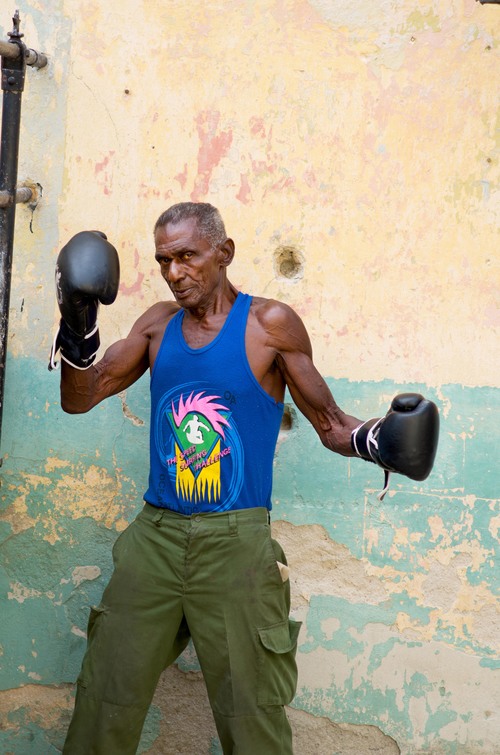
“Operate at the edge of your ability,” Coyle advises. “Make mistakes. Slow down. Correct errors. Try again.”
The way Cesar responded to instructions made me feel I was in boxing utopia, not a malnourished gym. There were no complaints or frustration on the part of the seven-year-old. He was in no rush.
Cesar wanted to learn the basics as if he inherently understood their value – not just learn them but eat, breathe, sleep and know the basics. He fully accepted the Cuban way, perhaps in Old Havana, there were no outside influences or distractions. No alternate approach. No means of comparison.
Most importantly, there was no doubt. They knew the system worked because for 40 years Cubans had won more than anyone else. From that very first jab a powerful congruency had been born. For generations these boxing masters were not just passing down their knowledge, they were cradling a craft and with it, the divine pursuit of perfection.
Purposeful or not, Cuba long ago cracked the code for the sweet science. Now, a new experiment begins, as a socialist regime gambles that money itself can resurrect a sport infamous for being tarnished by greed.
Maybe this new pursuit of profit will produce gold medals again? Or perhaps the “root of all evil” will be the weed that slowly strangles the foundations of Cuba’s known success?
If the embargo lifts and the country opens like many predict, distraction could cultivate into the most formidable opponent Cuban boxing has ever faced.
Men’s sacred values are beyond gold and money. It’s impossible to understand this when you live in a world where everything is bought and sold and gotten through gold.
FIDEL CASTRO, 1971
On my final night at the gym I noticed Raffy sizing me up once again. This time he tossed me some gloves and encouraged me to put them on. They felt damp and stank of old sweat. I imagined all the hands that had worn them and the astronomical amount of punches they had endured.
Initially, I thought Raffy simply wanted to show me a thing or two. But then I noticed his hands were also slipping into a pair of gloves. He had fought all his life and still wasn’t done.
Sure, boxing in Cuba is being compromised by the almighty dollar, but for now, fighters remain doing what they have always done best, punching for free and competing for pride.
Everyone, including me, knew this foreigner stood no chance against the local legend. But for a few glorious rounds I was no longer a spectator. I was in the scene, in the moment and in the tender hands of Cuba.
We loosened our necks and rolled our shoulders. Our eyes met. Our gloves kissed. We circled. We fought. We smiled.
